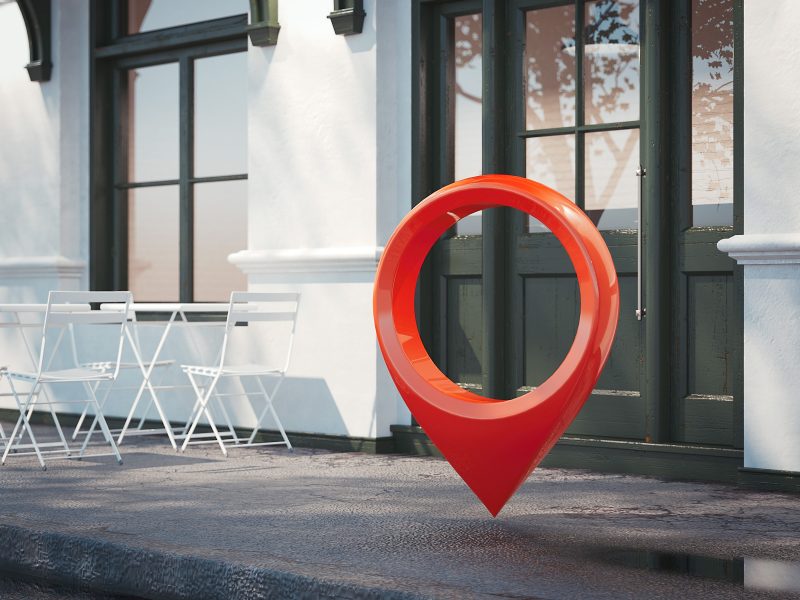Tips for Optimizing Your Restaurant’s Online Presence
The ways diners are discovering restaurants have changed dramatically in the last decade. Where restaurateurs once relied largely on third-party services for reservations and delivery that aided discovery, savvy operators are taking control of their customer experience through search-engine optimization.
Home » Tips for Optimizing Your Restaurant’s Online Presence

By: Jimmy Page
The ways diners are discovering restaurants have changed dramatically in the last decade. Where restaurateurs once relied largely on third-party services for reservations and delivery that aided discovery, savvy operators are taking control of their customer experience through search-engine optimization. And with good reason. More than 50% of a website’s traffic comes from organic search results. This is particularly impactful when it comes to hungry diners. Jimmy Page, founder of Hudson Creative and marketing and SEO expert, says, “Search engines are special because they exist at the end of the customer journey, at the end of the decision-making process. When you get in front of somebody when they’re making a Google search, that person is likely in your area, they know the kind of food they want, and they’re looking to eat or order now.” Not an SEO pro? Not a problem. Page has some simple tips to help diners discover your restaurant.
Make a Master Document
Before you begin your website’s journey to search engine optimization, gather every bit of information that could impact your SEO into a single document. That may sound overwhelming, but Hudson Creative has a free template so you’ll know what information matters. [You can download it here.] Once you’ve filled out this master document, you can ensure that you are presenting your business in a unified way on any listings site, such as Google, Yelp, and Foursquare. If you have multiple locations, you’ll need multiple master documents. “Even if it’s the same concept, every location is a little bit different. You may not have identical menus, your location will be different, your phone number. Treat each one as unique when it comes to amassing information,” Page says.
Don’t Discount Details
Every piece of information you can consistently communicate through listings will aid with discovery. From parking options and what type of credit cards you accept to being a Black-owned or woman-owned business, everything is important. “Collectively, all these different things are equal when it comes to the way people search for you,” notes Page. And, while you may be focused on your current details, Page and his team are sure to gather out-of-date information — and you should, too. “It helps us recognize if a restaurant has duplicate listings. Even worse than inconsistent information on various listings sites is duplicate listings. That will hurt a restaurant’s visibility on search engines,” he says. Duplicate listings can create a situation in which he says, “Google will ignore both of them as it can’t differentiate which one is correct.”
Identify What Makes You Special
“Before we think about keyword research with a restaurant client, I say to the client, ‘Tell me the five things that your restaurant is best known for. What makes your restaurant special?’” It could be your chef, your ambiance, or even a popular dish, as well as your general cuisine. Once you have those five attributes, edit them down into a few words or even a single word. Then, get Googling. “Put those terms into a Google search and then scroll down to the bottom of the page to see where Google makes suggested related searches for you. Then see which of those are a good fit for your restaurant. These can be the start of your keyword library,” says Page. He also recommends using Google Ads free tool, Google Keyword Planner. “You don’t even have to be running an ad campaign. You can put the phrases in and it will tell you which ones are most frequently searched.”
Google the Competition
When you’re amassing your keywords, it’s a good idea to research your competition to pressure test where you land with yours. And while you’re doing that, you can see many of the places you want your business to be listed. “Look through the search results and figure out which of their listings rank higher,” he says. “If Google ranks a Google page first, then Facebook, then Yelp, then Foursquare, then Zomato, it’s giving you your listings playbook right there. It gives you a priority list of where your business needs to be.”
Don’t Worry About Rank
A lot of operators want to come up first when a potential diner searches for a particular term related to their restaurant. But that’s not the best way to think about SEO. Page says, “That’s what I call a vanity metric. It comes from a place of pride, but really your SEO efforts should be more about your overall business goals. A business goal for an SEO campaign is to try to get you to show up more frequently for people who are searching for your restaurant in search engines. Showing up first for a particular keyword may be more of a target — and they could very well show up first for that through diligence.” Restaurateurs, though, should remember that the rankings they see may not be the same as someone standing in the same room with them. “Google serves different people different results based on the information they already have about you,” he says.
Mind Your Menu
A great number of restaurateurs have their menu on their websites in PDF form. It’s easy to understand why — it’s easy to upload and easy to update regularly. However, they are missing out on SEO valuable opportunities. “It’s much better to have menu items listed as text on your website rather than a PDF. If you have all twenty or thirty menu items as text on your site that gives you twenty or thirty different opportunities to attract a person who might be searching for something that isn’t necessarily your most popular menu items,” Page says. Accomplishing this can be more complex than simply going the route of a PDF, so be sure to communicate with your website developer. “It’s going to take time and effort as restaurants can have a lot of offerings on their menu, so cut your developer some slack in terms of time.”
You Don’t Need to Pay for Play
“I like organic better than paid ads,” admits Page. Paid social can be effective in specific use cases, such as a holiday ad. “If you’re trying to increase your Valentine’s Day bookings, that’s probably best suited for a paid campaign because it’s a short-term goal,” he says. When it comes to long-term goals, organic SEO is best suited for long-term growth. “If you’re trying to increase the number of people that find your restaurant when they’re searching, that’s more of an SEO campaign,” Page states.
Give It Time
A typical SEO project can take Page and his team eight to 10 weeks, but its effects last much longer. “When we spend this time on building up SEO, even without doing any additional follow-up work, the results can last for the next eighteen-plus months.” He advises that people don’t need to tinker with the work they’ve done prematurely. “Once you choose a keyword you want to target and you put the work in, you shouldn’t change it for at least six months. It takes time to ramp up and see results, and altering it prematurely will undercut the initial effort.”
Learn more about how Jimmy Page and the team at Hudson Creative can optimize your restaurant’s SEO and digital marketing strategy at https://hudsoncreative.com/.
Back to Blog PostsAbout NYCHG
Established in 2009, The New York City Hospitality Group ("NYCHG") is a New York City-centric organization dedicated to serving the restaurant and hospitality industry. NYCHG is comprised of the best in class professionals that act as a resource to each other and the hospitality community.
Subscribe
2019 nychg.org | Apply for Membership

